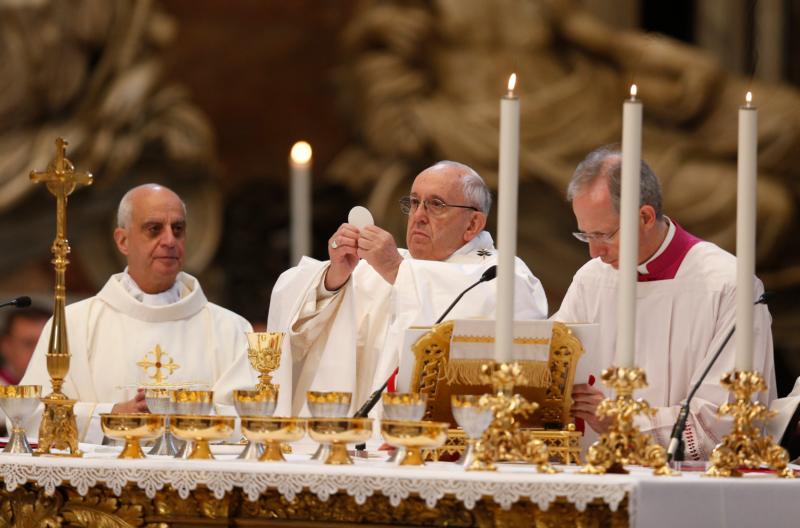
Those of us who have attended Holy Thursday’s liturgy for decades could never have imagined this year’s. We have always assumed that we would be eyewitnesses to the washing of feet, receive Communion, play a part in a solemn procession while “Pange Lingua” is intoned, and stay for adoration. Instead, this year’s Holy Week and much of Lent has turned into a Eucharistic fast for almost everyone.
Masses are livestreamed from our parishes or replayed on EWTN or Bishop Barron’s Word on Fire or any number of other sites. This Lent has attuned Catholics to the reasons why we so value church-going. Those who don’t attend Mass regularly typically say that they don’t get anything out of it, that the preaching or the music or the décor or the seating bothers them. They have other things to do and protest that they talk to God and find peace in the woods or on the beach or in their gardens.
But what this year has brought home is that an essential element of the Church is physical closeness. We understand Church to be essentially “communio.” Communion is one of those both/and words. It is both the community of believers and Holy Communion. Both of these entail presence—the presence of the faithful and the Real Presence of the Lord, body and blood, soul and divinity. Thanks to the rampage of the new coronavirus, we have been experiencing an imposed fast unlike any other. Presence has been absent, except in the form of our socially distanced communications and the revived custom of “spiritual communion.”
The spirit of love demands that we give up our churchgoing for the sake of the common good. And, during this Bicentennial year for our diocese, it gives us a taste of what Catholics here long experienced. As a minority population from the 16th century on, many Catholics practiced religion as a kind of shelter in place. They catechized their children, read gospels, and recited prayers in their homes and celebrated sacraments only when a traveling priest, a missionary, was able to visit with them. That often meant months-long fasting from the liturgical fullness of our faith.
But there is another kind of imposed fasting which is going on in our midst, one we can overlook when our beachfront hotels and golf courses are up and running.
The sisters in my local convent community run the St. Francis Center at St. Helena Island. Typically, they distribute food four days a week, assist people in getting clothing and furnishings or making deposits on utility bills, arrange shelter or make referrals for the homeless, and work with an ecumenical group to arrange home repairs (roofs, ramps, plumbing) for the elderly poor. For weeks now, their services have been cut to two mornings a week with the sisters, gloved, carrying bags of non-perishable items to people’s cars. In one week, they had more than 80 new client families. People who live in places like St. Helena or Yemasee or Allendale are among the first to be hit by the closure of tourist havens. Hunger sets in rapidly if a family relies on tips from restaurant-goers or the meager wages of housekeeping.
So while we are lamenting our physical absence from the Triduum and the splendor of our customary Easter, we might well remember that the Paschal Mystery embraces all of us — and that even on the cross the Lord’s attention went out to one of the least of his brothers, a thief crucified alongside him. That man’s small expression of faith and justice won him a promise of Paradise.


